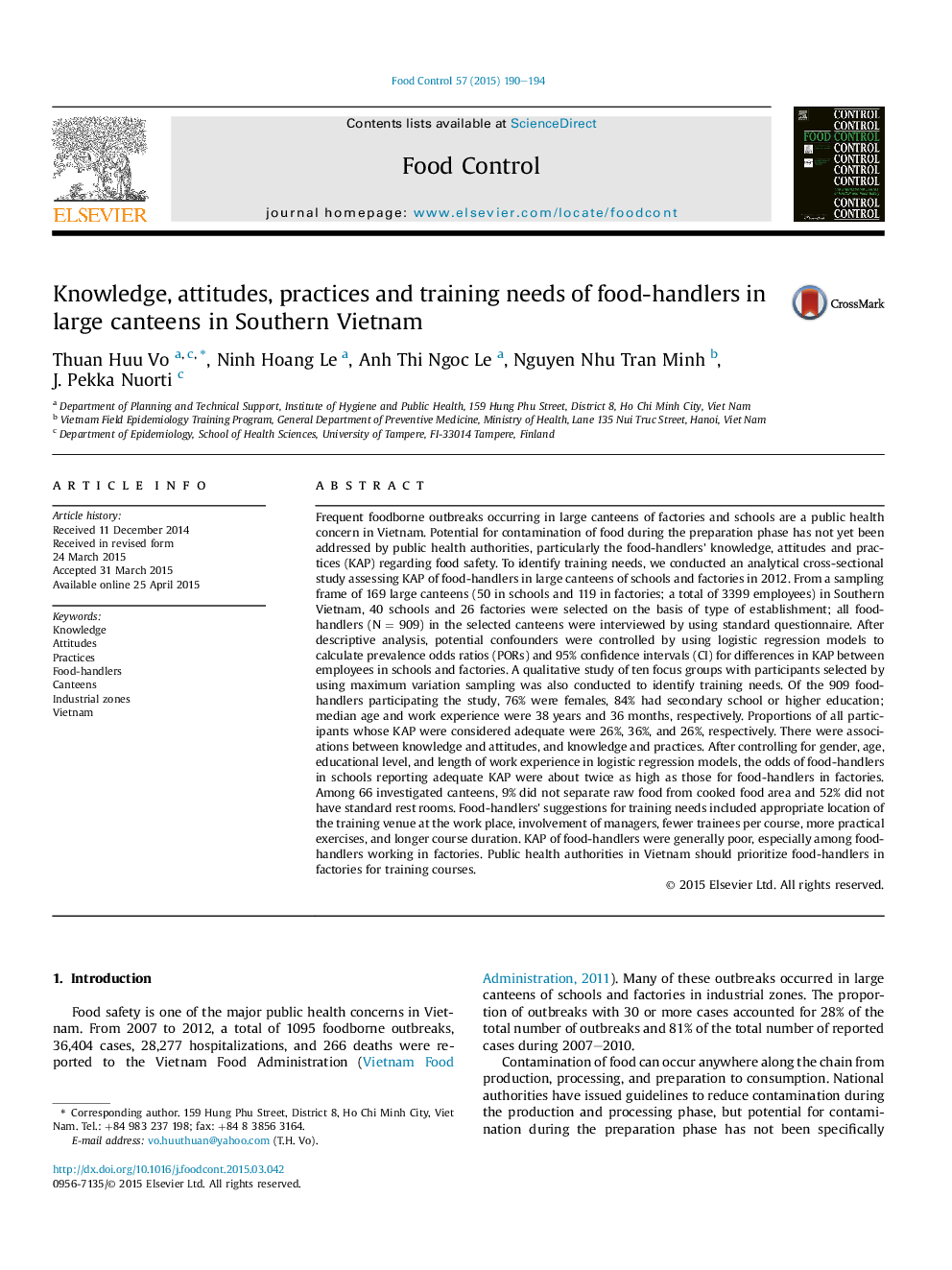| Article ID | Journal | Published Year | Pages | File Type |
|---|---|---|---|---|
| 6390718 | Food Control | 2015 | 5 Pages |
Abstract
Frequent foodborne outbreaks occurring in large canteens of factories and schools are a public health concern in Vietnam. Potential for contamination of food during the preparation phase has not yet been addressed by public health authorities, particularly the food-handlers' knowledge, attitudes and practices (KAP) regarding food safety. To identify training needs, we conducted an analytical cross-sectional study assessing KAP of food-handlers in large canteens of schools and factories in 2012. From a sampling frame of 169 large canteens (50 in schools and 119 in factories; a total of 3399 employees) in Southern Vietnam, 40 schools and 26 factories were selected on the basis of type of establishment; all food-handlers (NÂ =Â 909) in the selected canteens were interviewed by using standard questionnaire. After descriptive analysis, potential confounders were controlled by using logistic regression models to calculate prevalence odds ratios (PORs) and 95% confidence intervals (CI) for differences in KAP between employees in schools and factories. A qualitative study of ten focus groups with participants selected by using maximum variation sampling was also conducted to identify training needs. Of the 909 food-handlers participating the study, 76% were females, 84% had secondary school or higher education; median age and work experience were 38 years and 36 months, respectively. Proportions of all participants whose KAP were considered adequate were 26%, 36%, and 26%, respectively. There were associations between knowledge and attitudes, and knowledge and practices. After controlling for gender, age, educational level, and length of work experience in logistic regression models, the odds of food-handlers in schools reporting adequate KAP were about twice as high as those for food-handlers in factories. Among 66 investigated canteens, 9% did not separate raw food from cooked food area and 52% did not have standard rest rooms. Food-handlers' suggestions for training needs included appropriate location of the training venue at the work place, involvement of managers, fewer trainees per course, more practical exercises, and longer course duration. KAP of food-handlers were generally poor, especially among food-handlers working in factories. Public health authorities in Vietnam should prioritize food-handlers in factories for training courses.
Related Topics
Life Sciences
Agricultural and Biological Sciences
Food Science
Authors
Thuan Huu Vo, Ninh Hoang Le, Anh Thi Ngoc Le, Nguyen Nhu Tran Minh, J. Pekka Nuorti,
